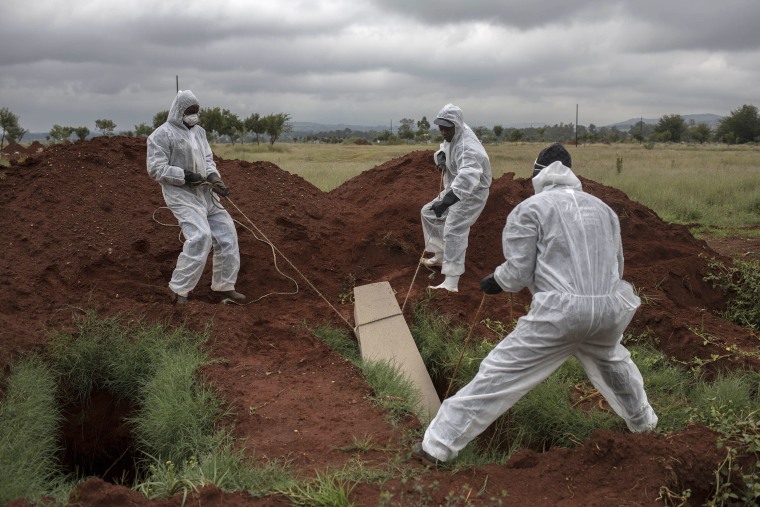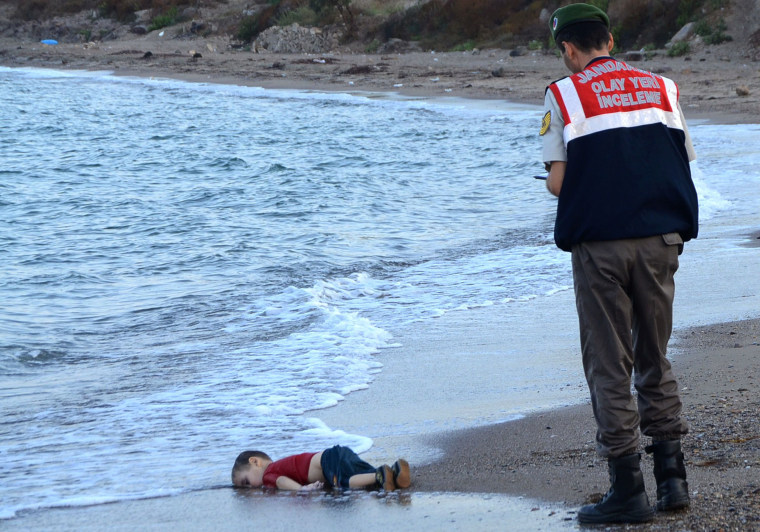As people worldwide flee war, hunger and a lack of jobs, global migration has soared to record highs.

By Associated Press
JOHANNESBURG
— One by one, five to a grave, the coffins are buried in the red earth
of this corner of a South African cemetery. The scrawl on the cheap wood
attests to their anonymity: "Unknown B/Male."
These men
were migrants from elsewhere in Africa with next to nothing who sought a
living in the thriving underground economy of Gauteng province, a name
that roughly translates to "land of gold." Instead of fortune, many
found death, their bodies unnamed and unclaimed — more than 4,300 in
Gauteng between 2014 and 2017 alone.
Some
of those lives ended here at the Olifantsvlei cemetery, in silence,
among tufts of grass growing over tiny placards that read: Pauper Block.
There are coffins so tiny that they could only belong to children.
As
people worldwide flee war, hunger and a lack of jobs, global migration
has soared to record highs, with more than 258 million international
migrants in 2017. That is an increase of 49 percent from the turn of the
century, according to the United Nations.
Far less
visible, however, has been the toll of this mass migration: The tens of
thousands of people who die or simply disappear during their journeys,
never to be seen again. A growing number of migrants have drowned, died
in deserts or fallen prey to traffickers,
leaving their families to wonder what on earth happened to them. At the
same time, anonymous bodies are filling cemeteries around the world,
like the one in Gauteng.
An
Associated Press tally has documented at least 56,800 migrants dead or
missing worldwide since 2014 — almost double the number found in the
world's only official attempt to try to count them, by the U.N.'s
International Organization for Migration. The IOM toll as of Oct. 1 was
more than 28,500. The AP came up with almost 28,300 additional dead or
missing migrants by compiling information from other international
groups, requesting forensic records, missing persons reports and death
records, and sifting through data from thousands of interviews with
migrants.
The AP's tally is still low. Bodies of migrants lie undiscovered in desert sands or at the bottom of the sea.
And families don't always report loved ones as missing because they are
illegal, or because they left home without saying exactly where they
were headed.

The official U.N. toll focuses mostly on Europe, but even there cases fall through the cracks. The political tide is turning against migrants in Europe just as in the United States, where the government is cracking down heavily on caravans of Central Americans trying to get in. One result is that money is drying up for projects to track migration and its costs.
Beyond Europe, information is even more scarce. Little is known about the toll in South America, where the Venezuelan migration is among the world's biggest today, and in Asia, the top region for numbers of migrants.
The
result is that governments vastly underestimate the toll of migration, a
major political and social issue in most of the world today.
"No
matter where you stand on the whole migration management
debate....these are still human beings on the move," said Bram Frouws,
the head of the Mixed Migration Centre, based in Geneva, which has done
surveys of more than 20,000 migrants in its 4Mi project since 2014.
"Whether it's refugees or people moving for jobs, they are human
beings."
nbcnews.com



Aucun commentaire:
Enregistrer un commentaire